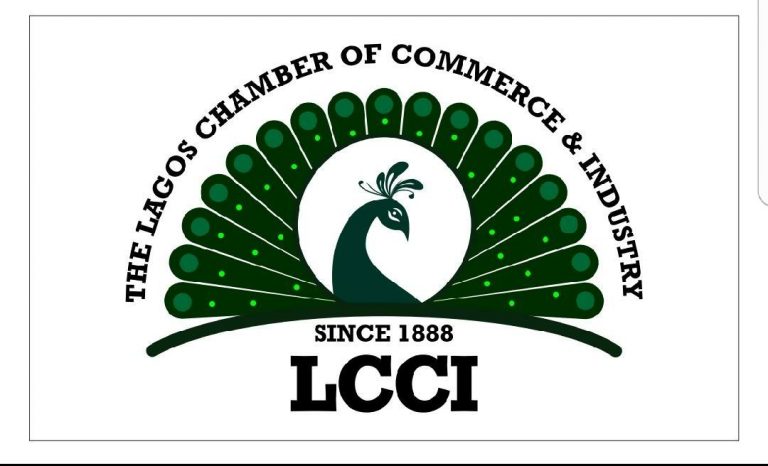Tax Reform Laws Will Boost Compliance, Ease Inflation Pressures- LCCI
The Lagos Chamber of Commerce and Industry (LCCI) has lauded the Federal Government for signing into law four landmark tax reform bills, describing the development as a major stride toward building a more transparent, efficient, and investor-friendly fiscal system.
The Chamber believes these reforms will significantly enhance tax compliance, support macroeconomic stability, and ease inflationary pressures in the long term.
The newly enacted legislations — the Nigeria Tax Bill (Ease of Doing Business), the Nigeria Tax Administration Bill, the Nigeria Revenue Service (Establishment) Bill, and the Joint Revenue Board (Establishment) Bill — mark a critical turning point in Nigeria’s journey toward comprehensive fiscal re-engineering.
The laws were developed through broad-based stakeholder consultations and championed by the Presidential Fiscal Policy and Tax Reforms Committee.
The Director-General of LCCI, Dr. Chinyere Almona described the reforms as bold and timely, noting their potential to reshape Nigeria’s fiscal landscape by reducing administrative inefficiencies, expanding the tax base, and restoring confidence in the economic environment.
“These reforms provide a solid institutional and legal framework to address long-standing issues in Nigeria’s tax system, including fragmentation, compliance bottlenecks, and lack of transparency,” Almona said. “They will enhance revenue generation, reduce the cost of doing business, and ease inflation pressures over time.”
According to the LCCI, while the broader tax net and compliance adjustments may lead to a slight uptick in core inflation in the short term—estimated at 40 to 60 basis points—the medium to long-term effects will likely be deflationary.
With the government now shifting from excessive monetary financing to a more sustainable revenue model, headline inflation is projected to ease from the current 27.6 percent (as of May 2025) to 15 percent by the end of 2026.
Importantly, essential goods and services have been exempted from Value Added Tax (VAT), a move LCCI believes will directly reduce the cost of living for millions of Nigerians and protect vulnerable households.
The Chamber also emphasized the reforms’ potential to improve Nigeria’s trade competitiveness. By harmonising tax collection systems and introducing a unified filing mechanism, the laws are expected to reduce compliance time by up to 40 percent, cutting operational costs for businesses and improving Nigeria’s standing in global ease of doing business rankings.
These measures are expected to particularly benefit exporters and businesses operating within the African Continental Free Trade Area (AfCFTA), as Nigeria positions itself as a competitive trade hub in the region.
Almona noted that the introduction of a single taxpayer identification number, time-bound tax refund mechanisms, risk-based audit processes, and taxpayer protection instruments such as the Office of the Tax Ombudsman will improve transparency and accountability within the tax system.
Nigeria currently has one of the lowest tax-to-GDP ratios in sub-Saharan Africa at 7.9 percent. With the reforms fully implemented, LCCI projects non-oil tax revenues could rise by ₦3.2tn over the next two years, potentially increasing the tax-to-GDP ratio to 12 percent by 2027.
“These reforms strike the right balance between expanding the tax net and protecting taxpayer rights,” said Almona. “By addressing leakages and simplifying processes, we can bring more businesses into the formal sector without overburdening them.”
In addition to improving revenue mobilization, the reforms are expected to create a more attractive environment for domestic and foreign investors. Nigeria recorded just $29.83m in foreign direct investment inflows in Q4 2024, underscoring the urgency of structural reforms.
The establishment of the Nigerian Revenue Service (NRS) as an independent entity, supported by strong performance reporting systems and digital monitoring tools, is seen as a critical step in reinforcing investor confidence and reducing Nigeria’s country risk premium.
“These laws send a powerful message to the global investment community: Nigeria is ready to do business transparently and competitively,” Almona added.
While commending the passage of the laws, the Chamber stressed that implementation remains the ultimate test. It called for a public-facing implementation roadmap to be rolled out immediately, beginning with pilot e-tax systems in high-revenue states such as Lagos, Rivers, and Kano.
LCCI also urged coordinated action among federal, state, and local governments to avoid duplication and ensure consistency. “Execution will require political will, capacity building, and continuous engagement with the private sector to identify challenges and adapt accordingly,” Almona stated.
The Chamber praised the work of the Presidential Fiscal Policy and Tax Reforms Committee for its inclusive and transparent approach throughout the legislative process. It also called for continued stakeholder engagement as the January 2026 implementation date approaches.
“The next six months provide a critical window to test systems, build institutional capacity, and fine-tune operational models,” Almona said. “If well-executed, these reforms could serve as a foundation for fiscal sustainability, inclusive growth, and economic transformation.”
The LCCI reaffirmed its commitment to supporting the government’s tax reform agenda and encouraged businesses to engage actively with the implementation process to ensure that the benefits are fully realized across all sectors of the economy.












